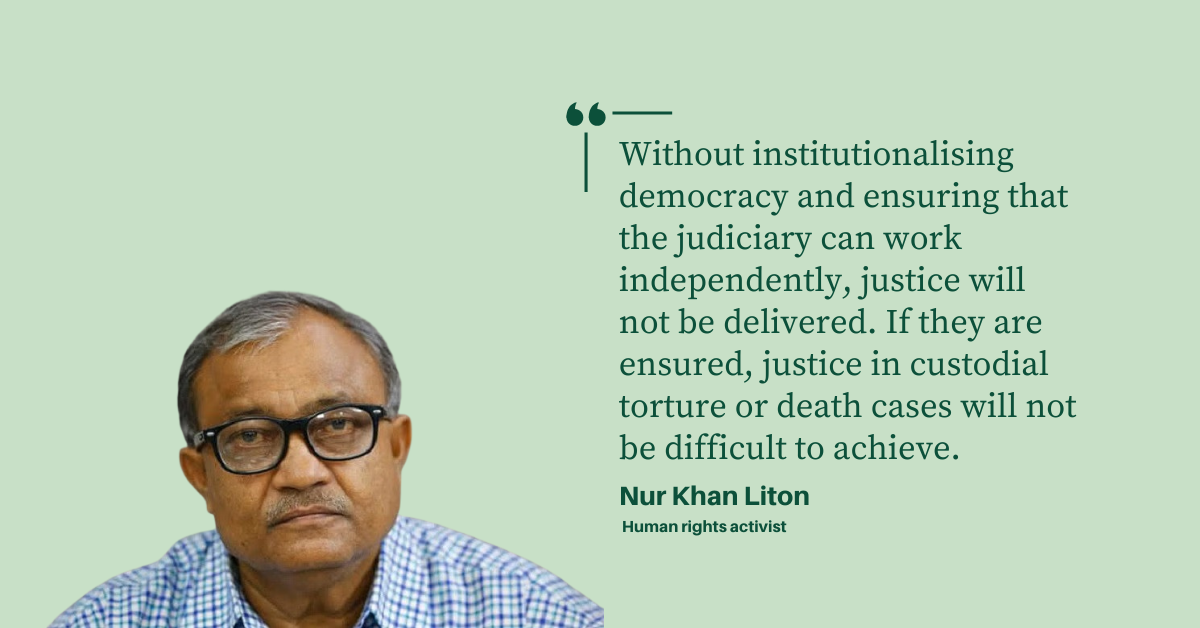Ensure justice for the disappeared

The United Nations Working Group on Enforced or Involuntary Disappearances has expressed deep concerns over the widespread impunity surrounding enforced disappearances in the country and has called on Bangladesh to ensure genuine accountability from its security, law enforcement, and intelligence agencies. Following a four-day visit to the country, it published a report highlighting these concerns. We echo the UN's concerns, as we still await a full account of the state-sponsored human rights violations that occurred during the 15-year rule of the Awami League. After the July uprising that led to the fall of the AL government, the public expected that those responsible for such grave human rights abuses would be held accountable. Unfortunately, we have yet to see significant progress in the investigation of these enforced disappearance cases.
Soon after taking office, the interim government established a commission to investigate all cases of enforced disappearances. It also ratified the International Convention for the Protection of All Persons from Enforced Disappearance, making Bangladesh accountable to international human rights bodies. The commission has verified 1,350 cases of disappearance and identified 16 secret detention centres, known as Aynaghar, which were used for torture. Evidence suggests that these were not isolated incidents, but part of a coordinated system operated under centralised authority. Investigations revealed that state security forces, including the RAB, DGFI, and the Detective Branch, were directly involved in these grave human rights violations. As highlighted in a fact-finding report by the United Nations Human Rights Office (OHCHR), the AL government systematically abused the justice system and security apparatus to suppress civil society, targeting journalists, activists, and dissenting voices through intimidation and enforced disappearances. Such practices must stop once and for all. The next elected government must make a firm commitment that such grave human rights violations will never be repeated in future.
To deliver justice in these cases and to prevent future human rights violations, the state must ensure full accountability and uphold fair trial standards in all judicial proceedings, as emphasised by the UN Working Group. Preserving the evidence properly is of utmost importance. Survivors of enforced disappearances have recently called on the government to establish independent oversight mechanisms for all security and intelligence agencies, while also urging the state to formally acknowledge the role of these agencies in past rights violations, which is critical in ensuring justice for the victims. Furthermore, the repressive laws such as the Special Powers Act, 1974, and the Anti-Terrorism (Amendment) Act, 2013, which have reportedly been used to justify extrajudicial killings, arbitrary arrests, and enforced disappearances—and are also incompatible with international human rights standards—must be repealed. Last but not least, the security institutions must regain public trust and legitimacy "through genuine accountability processes within these institutions," as the UN Working Group has suggested.



 For all latest news, follow The Daily Star's Google News channel.
For all latest news, follow The Daily Star's Google News channel. 

Comments